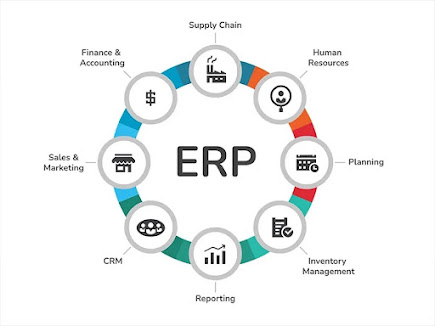ERP Accounting System: Improving Financial Management in Kuwait
In today's digital age, businesses of all sizes must leverage the latest technological tools to stay competitive. One such tool is the Enterprise Resource Planning (ERP) accounting system, which integrates various business processes into a single, comprehensive solution. This article explores the benefits of implementing an ERP accounting system and answers some frequently asked questions (FAQs) about this software.
What is an ERP Accounting System?
An ERP accounting system is a software solution that integrates various financial management processes, including accounting, inventory management, purchase orders, sales, and payroll. By combining these different functions, businesses can streamline their financial management activities and improve their overall efficiency.
Benefits of an ERP Accounting System
Increased Accuracy: Manual financial management processes are prone to errors, which can lead to costly mistakes. An ERP accounting system automates many of these tasks, reducing the risk of human error and ensuring that financial data is accurate.
Improved Efficiency: With an ERP accounting system, businesses can automate many financial management tasks, such as invoice processing and payment processing, reducing the time and effort required to complete them. This automation also reduces the workload on finance teams, enabling them to focus on more strategic tasks.
Better Decision Making: An ERP accounting system provides businesses with real-time financial data, enabling them to make more informed decisions. This data can be used to identify areas of inefficiency or to assess the financial impact of different business decisions.
Enhanced Security: An ERP accounting system provides enhanced security features, protecting financial data from unauthorized access or theft. This is especially important for businesses in Kuwait, where cybercrime is a growing threat.
FAQs
Q: Is an ERP accounting system suitable for small businesses in Kuwait?
A: Yes, ERP accounting systems can be customized to meet the needs of small businesses in Kuwait. In fact, small businesses can benefit greatly from the automation and efficiency gains that these systems provide.
Q: How long does it take to implement an ERP accounting system?
A: The implementation time for an ERP accounting system can vary depending on the size of the business and the complexity of the system. However, most implementations can be completed within a few months.
Q: Can an ERP accounting system be integrated with other business applications?
A: Yes, most ERP accounting systems can be integrated with other business applications, such as customer relationship management (CRM) software or supply chain management (SCM) software.
Q: Is training required to use an ERP accounting system?
A: Yes, training is required to use an ERP accounting system effectively. However, most ERP vendors provide training to their customers as part of the implementation process.
Q: Can an ERP accounting system be accessed remotely?
A: Yes, most ERP accounting systems can be accessed remotely, enabling finance teams to work from anywhere with an internet connection.
Conclusion
An ERP accounting system is a powerful tool that can help businesses of all sizes in Kuwait improve their financial management processes. By automating many of the time-consuming and error-prone tasks associated with financial management, businesses can improve their efficiency, accuracy, and decision-making capabilities. While implementing an ERP accounting system requires some upfront investment in terms of time and resources, the benefits it provides are well worth the investment.



Comments
Post a Comment